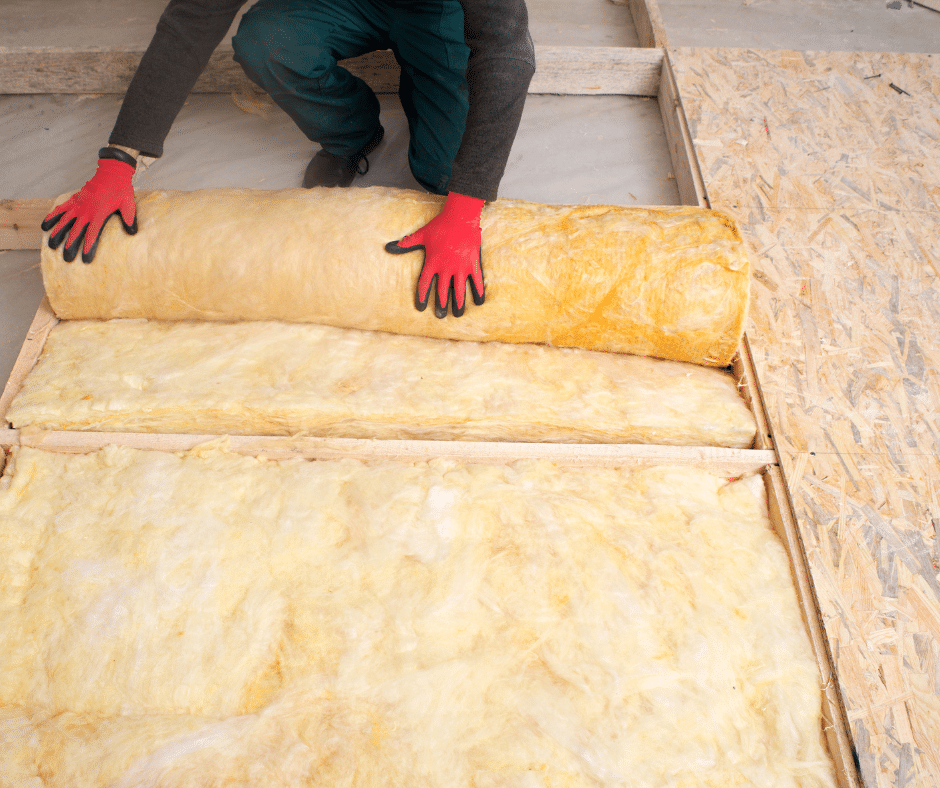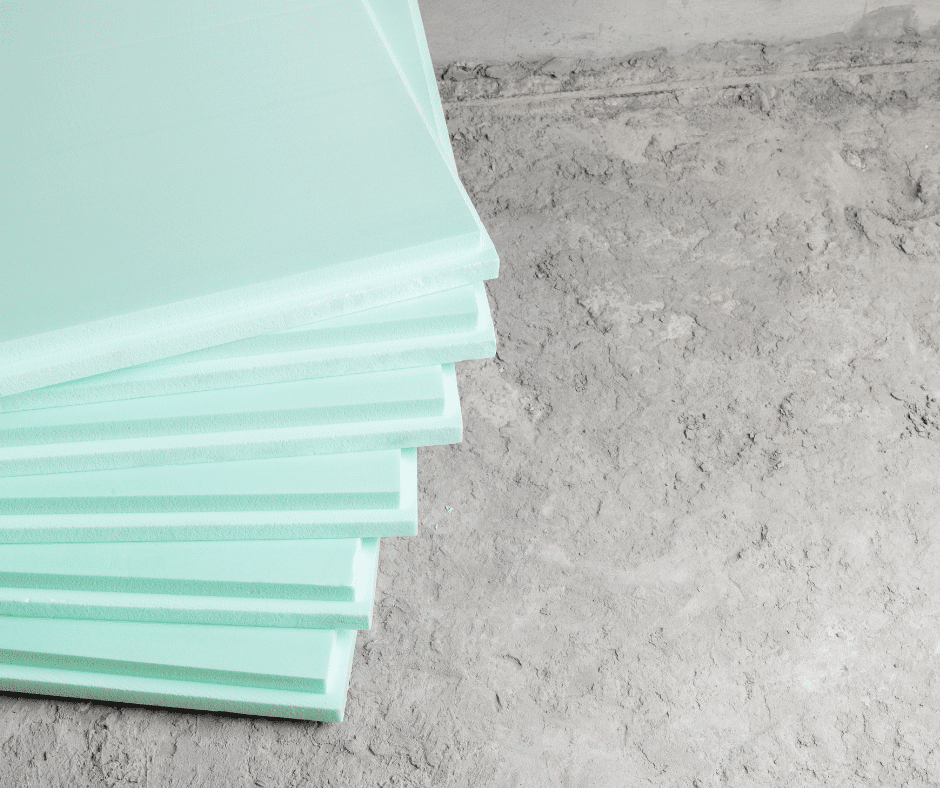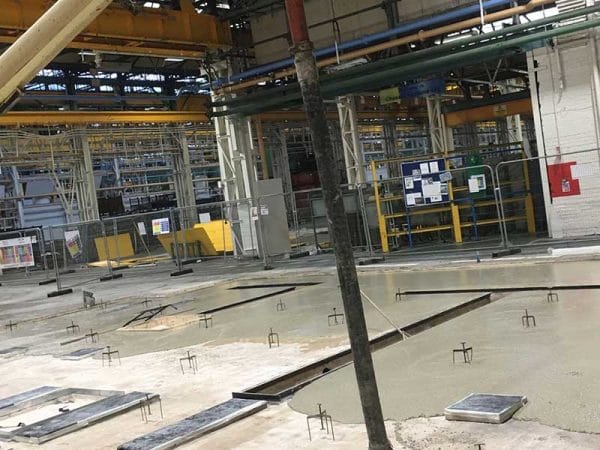Acoustic Floor Insulation
Acoustic floor insulation is a great ally when it comes to noise pollution, by significantly reducing the noise levels inside a building and improving general wellbeing. Discover more about how GM Floor Screeds can help you or contact us for more information.

What Is Acoustic Floor Insulation?
Acoustic floor insulation, or floor insulation, helps to minimise noise levels by decreasing sound transmission from inside and outside of the building. This includes airborne sounds like conversations, through structures such as floors and walls, and outside noise such as traffic.
Acoustic floor insulation decreases noise levels by trapping sound waves on the sound absorbers and barriers, which are installed on the subfloor of a building, usually under concrete or timber floors, but also suitable for a range of flooring types.
Acoustic materials vary according to the system used, the type of building, and the requirements of the project. They include foam panels, cork mats, rubber, fibreglass, and mineral wool. Some acoustic floors may include a floating floor that prevents the materials from touching the subfloor, increasing soundproofing levels.
Why Choose Acoustic Floor Insulation?

Whether you are considering acoustic floor insulation for a new building or renovation, GM Floor Screeds can help. Acoustic floor insulation is essential when it comes to reducing the impact that noise, both outside and inside, can bring on someone’s daily life.
Research shows that one in every five people is exposed to night sound levels that may affect their general well-being and health, and therefore acoustic flooring can help by minimising the noise levels both from inside of the building, as well as preventing the noise from inside to transfer to other rooms and floors.
Some other benefits of acoustic floor insulation may include:
- Noise reduction: Reduce both airborne noise (e.g. TV sounds and conversation) and impact noise (e.g. Footsteps or dropping sounds)
- Compliance with UK Building Regulations: The UK Building Regulations Part E include standard soundproofing for residential and commercial buildings.
- Increased Comfort: By creating a quieter environment, acoustic floor insulation can help increase living and working environment comfort.
- Energy Efficiency: Most acoustic floor insulation comes with thermal insulation. This helps retain the heat of the building, improving energy efficiency levels and therefore saving you money.
- Increased Property Value: Enhance the appeal of the property with the addition of what can be considered a premium feature.
- Versatility: Acoustic floor insulation can be installed with a range of flooring types, as well for new builds and renovation projects.
- Improved Well-being: By reducing noise levels, mainly at night, the general well-being levels can be improved, so you can relax or focus in a quieter place.
What To Consider When Installing an Acoustic Floor Insulation?
Depending on the project requirements, different considerations must come into place. Some of them include:
Type of insulation: While spray foam insulation can be used to fill in gaps and cavities to prevent noise from entering a space, Rockwool insulation is frequently utilised to lessen sound transmission.
Thickness of Insulation: The insulation's ability to block noise will increase with thickness, but it may depend on a few other factors.
Budget: The cost of the project may vary according to the material chosen, performance grade, area of installation, subfloor conditions, type of property, additional components such as floating floor or moisture barriers and more.
For a quote from flooring specialists in the Midlands, do not hesitate to contact GM Floor Screeds.
Choose GM Floor Screeds
If you are looking for a reliable and committed acoustic floor insulation installer, do not hesitate to get in touch with one of our specialists. Our services go beyond acoustic floor insulation. We also provide a range of flooring solutions, such as a range of floor screeding services, underfloor heating systems, floor level surveys, and more!
We are based in Birmingham, but we deliver our services through the Midlands. Get in touch today for a quote free of charge.

Acoustic Floor Insulation FAQs
Acoustic floor insulation can be retrofitted into existing buildings but may require floor level or flooring modifications for proper installation.
Many acoustic insulation materials, like Rockwool and foam panels, provide thermal insulation benefits as well. This dual function can enhance energy efficiency while reducing noise.
The time required depends on the size of the area, the type of insulation used, and the condition of the subfloor. For more information, please contact one of our team members.
Acoustic floor insulation can be installed on various flooring types like carpet, laminate, vinyl, and engineered wood, with suitability varying based on the chosen insulation system.
Our acoustic floor insulation service is designed to meet or exceed UK Building Regulations, including Part E, which covers soundproofing standards for residential and commercial buildings.
Acoustic floor insulation reduces noise from below but can also minimise sound transmission from upper floors when combined with additional soundproofing measures.
Our Address:
Contact Form
Address: Unit 2 Ranton Park, Martindale, Hawks Green, Cannock, Staffordshire, WS11 7XL
Email: info@gmfloorscreeds.com
Landline: 01543 572 177


